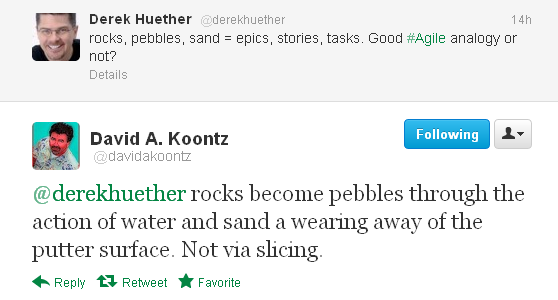When coaching clients who use physical team boards, I'm seeing more of them gravitate away from pins and painters tape and toward the use of magnetic whiteboards, sticky-notes and index cards. I see them making a substantial upfront investment in the whiteboards and then again with magnets. If the magnets are too costly, I see them make the lessor but incremental investment in painters tape, post-it notes and paper index cards. So, how do you eliminate the waste of the disposable index card or post-it note? Just combine the magnet and card!
To be clear, I've got no skin in the game with this company. I'm not being paid to write this and I'll make no money if you purchase their product. I just think this is a product that you'll like and I think it's worth writing about.
Though I usually don't do product reviews, I found the product from Story Cards particularly compelling. I asked them to send me a few samples so I could see for myself if this is something I would recommend to others. Well, it is!
If you purchase a group of these reusable story cards, say goodbye to sticky-notes, painters tape, magnets or pins. They come in four colors: blue, red, green, white. These reusable story cards are made of a flexible magnetic material on one side and whiteboard material on the other. They peel off easily but have enough grip that they won't blow off the board like post-it notes do. Great idea! Thank you storycards.co and day5labs.



